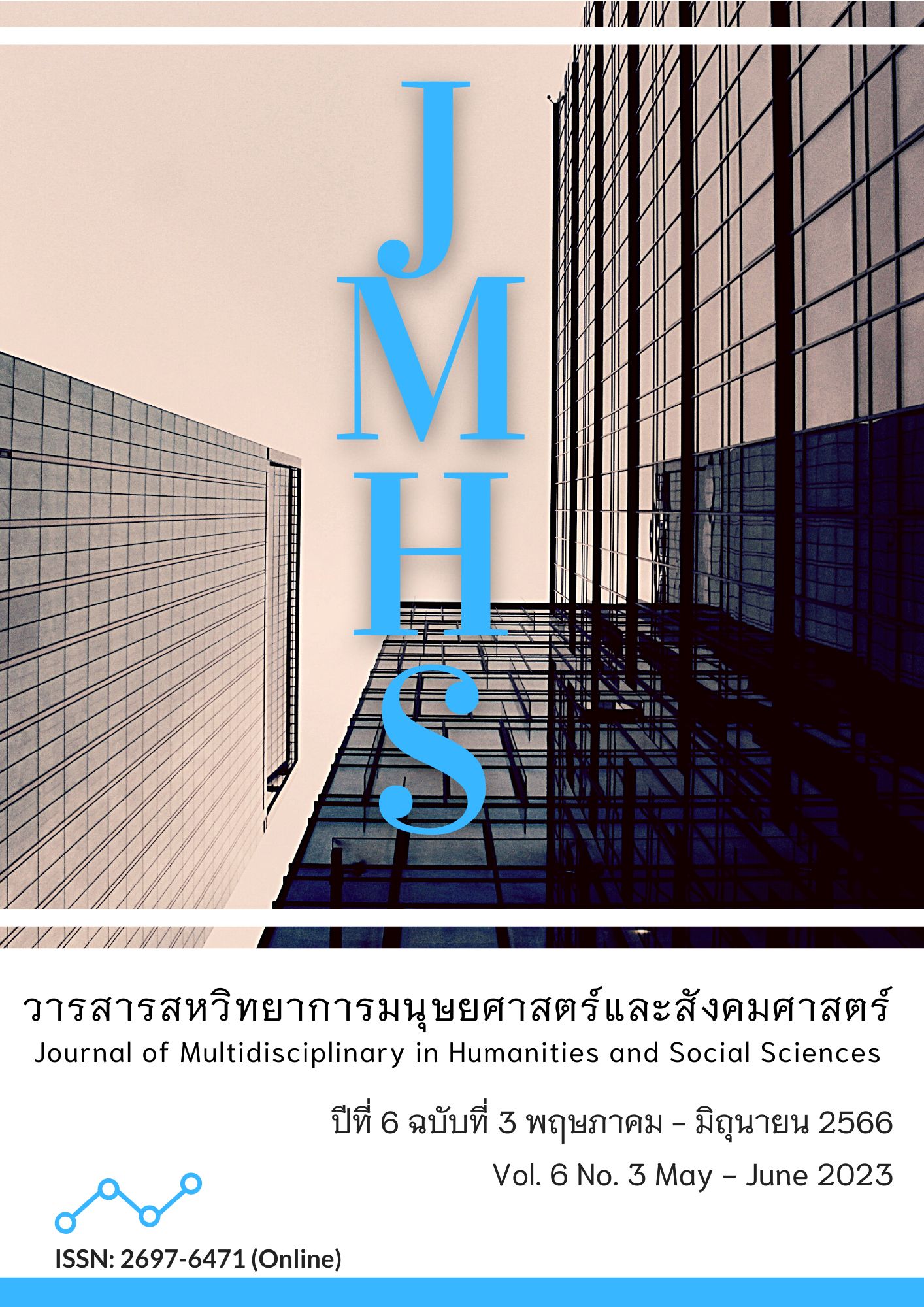Personal Conflict: How Do University Teachers Deal with It?
Main Article Content
Abstract
Personal conflicts among teachers do not only affect their physical and mental health but also their working performance. If managed carefully, the teamwork can be functioning effectively. If not, it might lead to frustration, resignation or even crimes. This study examined the conflicts the university teachers have experienced and their chosen conflict management styles using Thomas-Kilmann Model for interpretation and reflections. Five teachers, selected by purposive sampling, from two governmental universities provided their personal reflections in a set of in-depth interviews. Their reflections were studied with descriptive analysis together with documentation on theories and strategies dealing with personal conflicts. The results showed that three of them who used various strategies are still holding on the job and progressing professionally while the other two, with limited strategies, chose to leave. Most of them adopted Avoiding style and still carried the pain even if the conflicts were subsided or ended already. It is suggested that the teachers adopt various conflict management strategies to deal with the problems. The university management above the program level should also impose systematic measurements for the prevention and solution to the personal conflicts.
Article Details

This work is licensed under a Creative Commons Attribution-NonCommercial-NoDerivatives 4.0 International License.
Views and opinions appearing in the Journal it is the responsibility of the author of the article, and does not constitute the view and responsibility of the editorial team.
References
Alves, R. A., Lopes, R. T., & Neto, F. L. (2017). Spirituality, social support, and quality of Life among Brazilian cancer patients. Journal of Religion and Health, 56(2), 619-631.
Burden, P.R. (1982). Personal and Professional Conflict Stress for Teachers. Retrieved from https://eric.ed.gov/?id=ED218272
Chan, C.Y., Sit, N.M., & Lau, W.M. (2014). Conflict management styles, emotional intelligence and implicit theories of personality of nursing students: A cross-sectional study. Nurse Education Today, 34(6), 934-939.
Covey, S. R. (1989). The 7 habits of highly effective people. London: Simon and Schuster.
Davis, H. A., & Finney, S. J. (2019). Teacher-student conflict and academic achievement: A systematic review and meta-analysis. Review of Educational Research, 89(5), 785-822.
Fisher, R., & Ury, W. (2011). Getting to yes: Negotiating agreement without giving in. New York: Penguin.
Gibson, C. B., & Zell, D. (2017). Finding common ground: A review and critique of Collaborative problem solving in teams. Academy of Management Review, 42(1), 17-43.
Hanushek, E. A., Kain, J. F., & Rivkin, S. G. (2004). Disruptive students and the decline in test scores. Economics of Education Review, 23(2), 115-124.
Huan L.J., & Yazdanifard, R. (2012). The difference of conflict management styles and conflict resolution in workplace. Business & Entrepreneurship Journal, 1(1), 141-155.
Huhman H.R. (2014). Four strategies for reducing workplace conflict. Retrieved from http://www.entrepreneur.com/article/241199
Ingersoll, R. M. (2001). Teacher turnover and teacher shortages: An organizational analysis. American Educational Research Journal, 38(3), 499-534.
Katz, J., & Lawyer, J. L. (2015). Listening skills and teacher conflict resolution: A review. Journal of Instructional Psychology, 42(3), 185-194.
Khamkhong, Y., & Tayco, N. (2018). Managing Conflicts in a Multicultural Organization: A Perspective of Educators. Retrieved from https://ssrn.com/abstract=3096834
Lange, L., & Heijden, B. (2019). Third-party conflict management interventions: A systematic review and recommendations for future research. Journal of Conflict Resolution, 63(5), 1277-1307.
Lee, F.M. (2003). Conflict management styles and emotional intelligence of faculty and staff at a selected college in southern Taiwan. University of South Dakota.
Lunsford, L. G., & Zavattaro, S. M. (2016). The impact of principal leadership and collegial conflict on teacher job satisfaction: A path analysis. Educational Management Administration & Leadership, 44(6), 1009-1025.
Ma, Z. (2006). Competing or Accommodating? An Empirical Test of Chinese Conflict Management Styles. Contemporary Management Research, 3(1), 3-22.
Matichon. (2016). Open letter of Dr. Wanchai—better die than losing honor. Retrieved from https://www.matichon.co.th/local/crime/news_142126
MGRonline. (2019). Too many universities, empty classrooms. Retrieved from https://mgronline.com/daily/detail/9620000051779
Miller, C. A. (2014). The impact of teacher conflict on student behavior in the classroom. Journal of Education and Learning, 3(2), 22-34.
Munduate, L., Ganaza, J., Peiró, J.M., & Euwema, M. (1999), Patterns of styles in conflict management and effectiveness. International Journal of Conflict Management, 10(1), 5-24.
Nation. (2016). Lecturers call for major reform of higher education after tragedy. Retrieved from https://www.nationthailand.com/in-focus/30286450
Rahim, M. A. (2017). Managing conflict in organizations (4th ed.). New York: Routledge.
Rahim, M. A. (2002). Toward a theory of managing organizational conflict. International Journal of Conflict Management, 13(3), 206-235.
Rumberger, R. W., & Palardy, G. J. (2005). Teacher experience and satisfaction with support and resources in California public schools. Educational Evaluation and Policy Analysis, 27(3), 267-285.
Skordoulis, M., Koukounaras Liagkis, M., Sidiropoulos, G., & Drosos, D. (2020). Emotional intelligence and workplace conflict resolution: The case of secondary education teachers in Greece. International Journal of Research in Education and Science (IJRES), 6(4), 521-533.
Stoop, N., van der Houwen, F., & van der Heijden, B. (2018). Coping with interpersonal conflicts at work: Comparing task and relationship conflict. Journal of Applied Social Psychology, 48(3), 118-129.
Tajfel, H., & Turner, J. C. (1979). An integrative theory of intergroup conflict. In W. G. Austin & S. Worchel (Eds.), The social psychology of intergroup relations (pp. 33-47). Monterey, CA: Brooks/Cole.
ThaiAC. (2020). Private colleges bound to collapse. Retrieved from https://thai.ac/news/show/450140
Thai PBS World. (2022). Slumping birth rate poses urgent policy challenges for government. Retrieved from https://www.thaipbsworld.com/slumping-birth-rate-poses-urgent-policy-challenges-for-government/
Tiliopoulos, N., Francis, L. J., & Slattery, M. (2015). The internal consistency reliability of a new measure of personal meaning among religious believers and non-believers. Mental Health, Religion & Culture, 18(8), 636-640.
Tjosvold, D., Tang, M. M., & West, M. A. (2014). Reflexive leadership and collective action in teams. Journal of Organizational Behavior, 35(6), 813-839.
Thomas, K. & Kilmann, R. (2008). Thomas-Kilmann conflict mode instrument. Retrieved from https://lig360.com/wp-content/uploads/2022/09/Conflict-Styles-Assessment.pdf
Workshop Bank. (2023). Thomas-Kilmann conflict mode instrument. Retrieved from https://workshopbank.com/thomas-kilmann-conflict-mode-instrument


